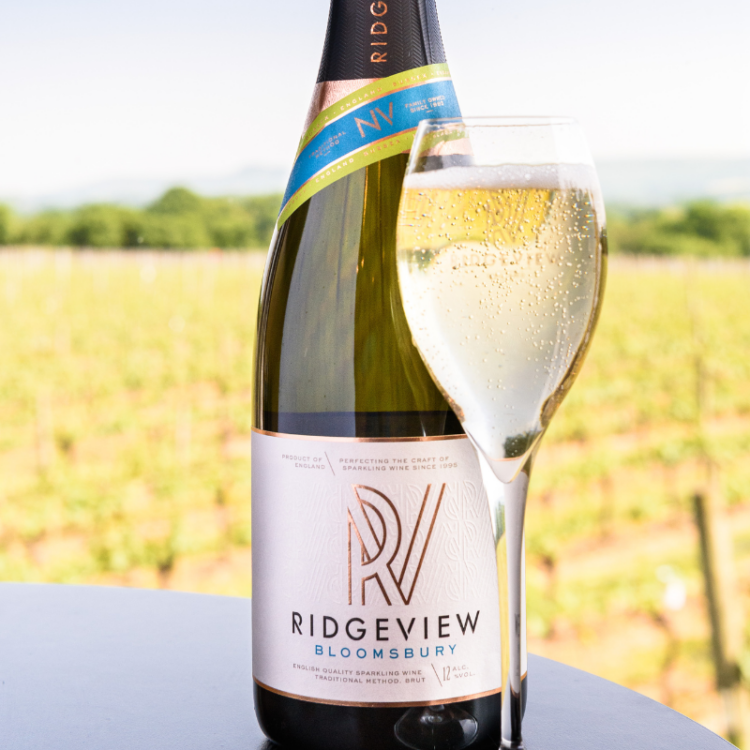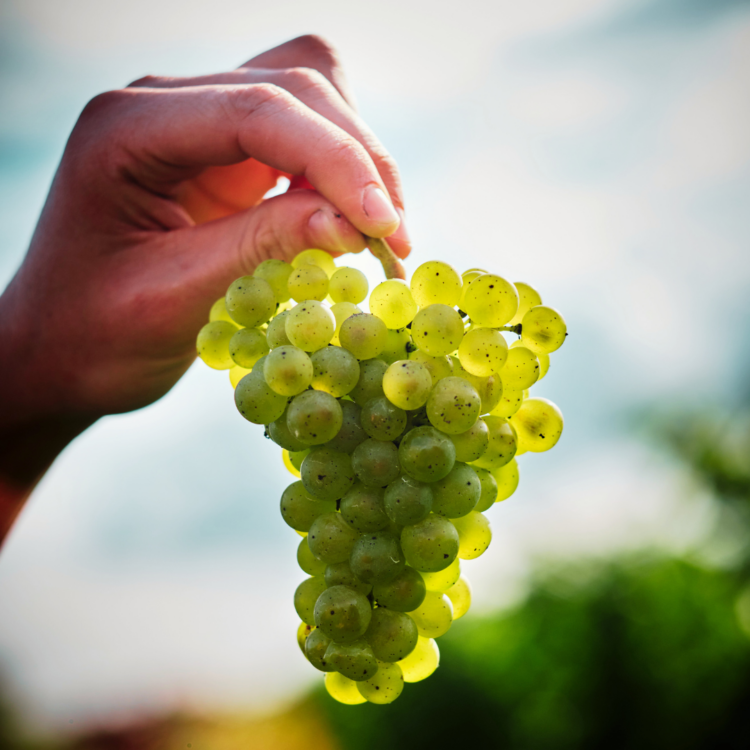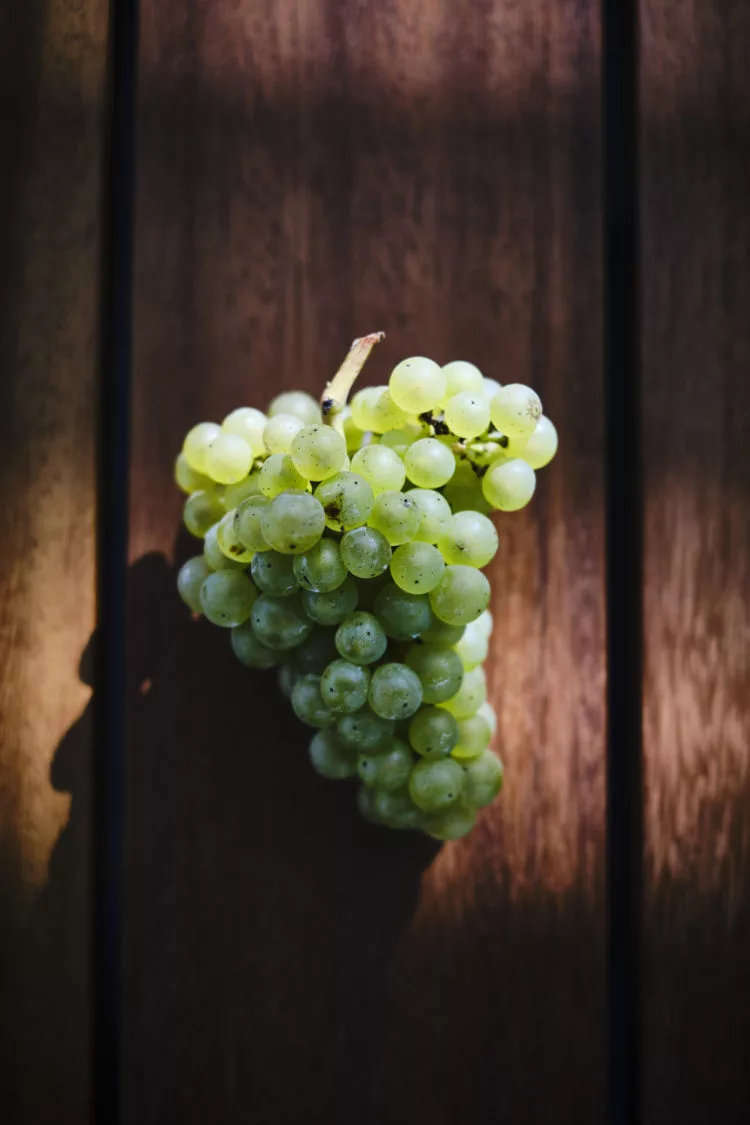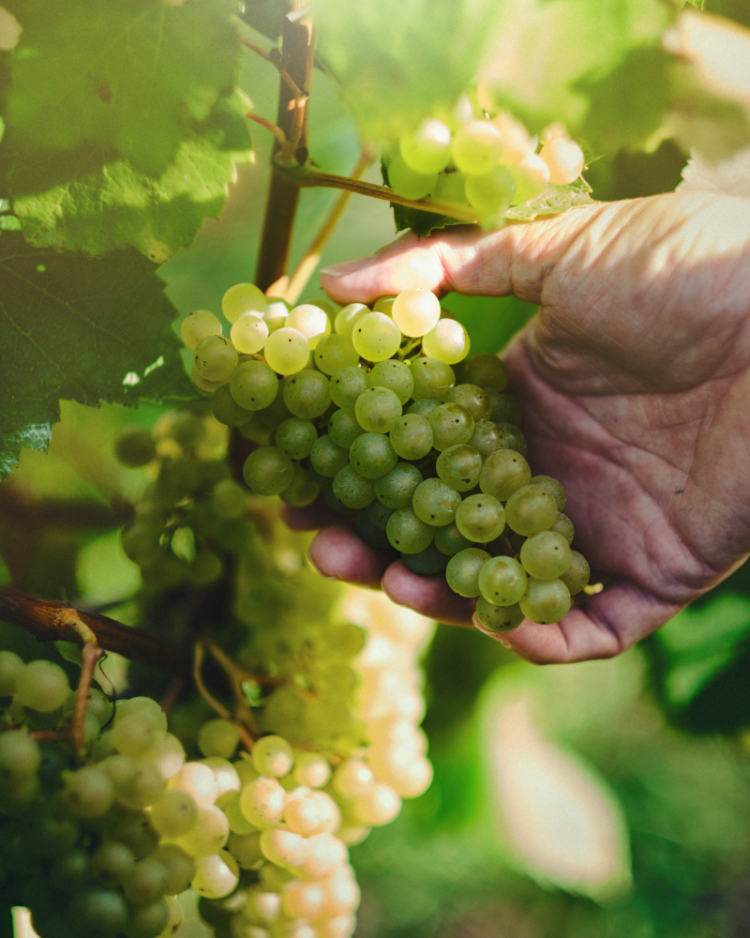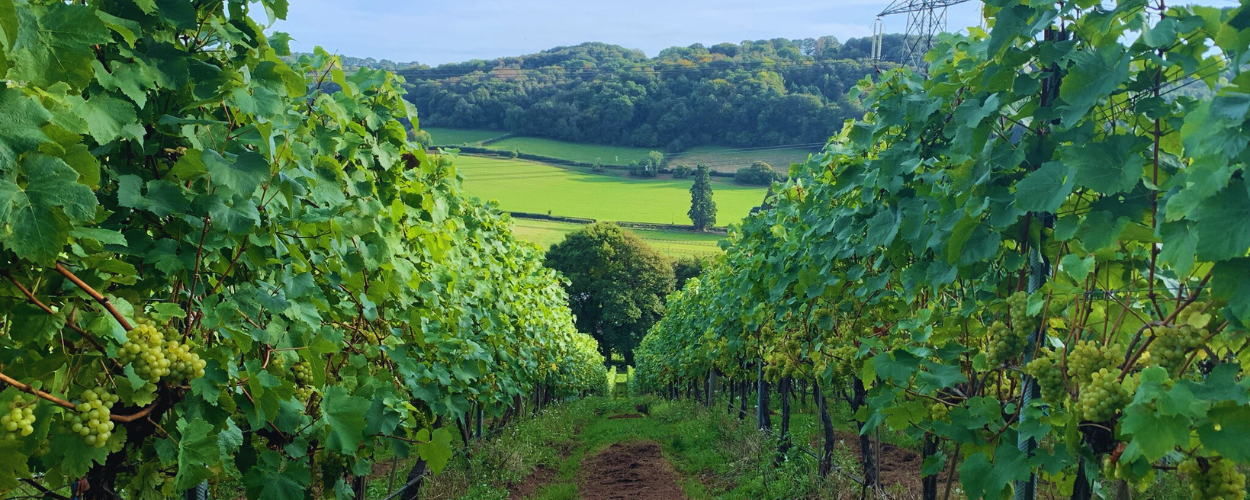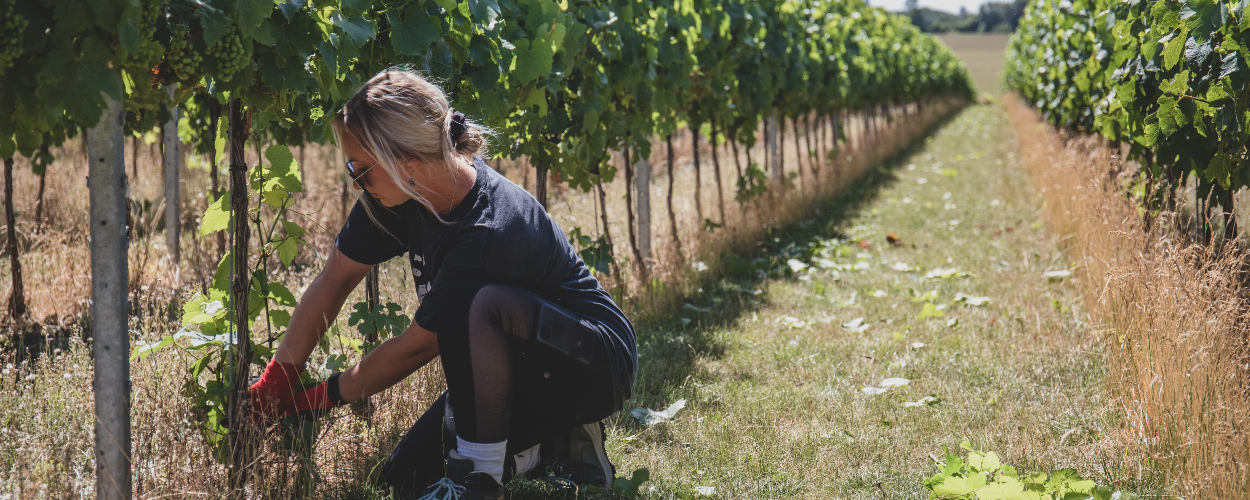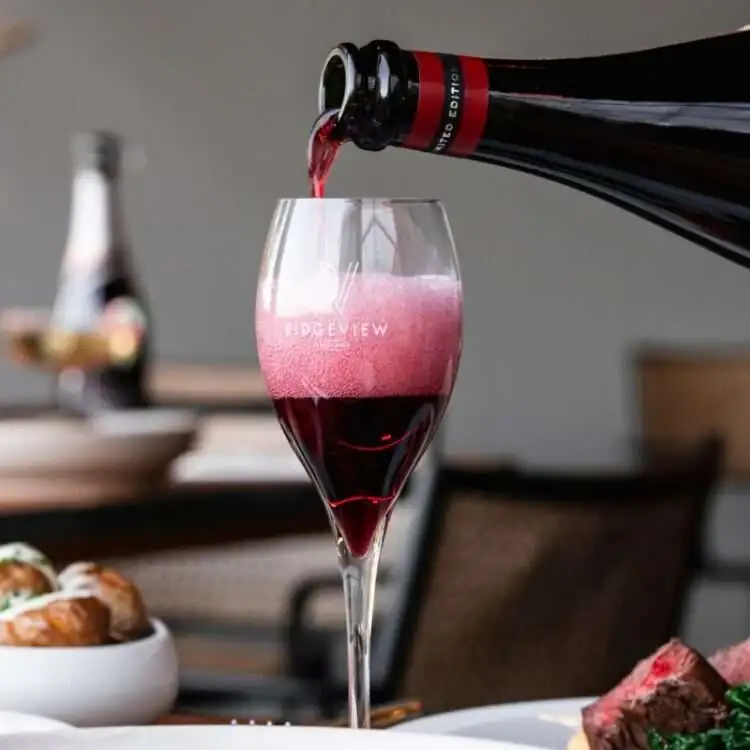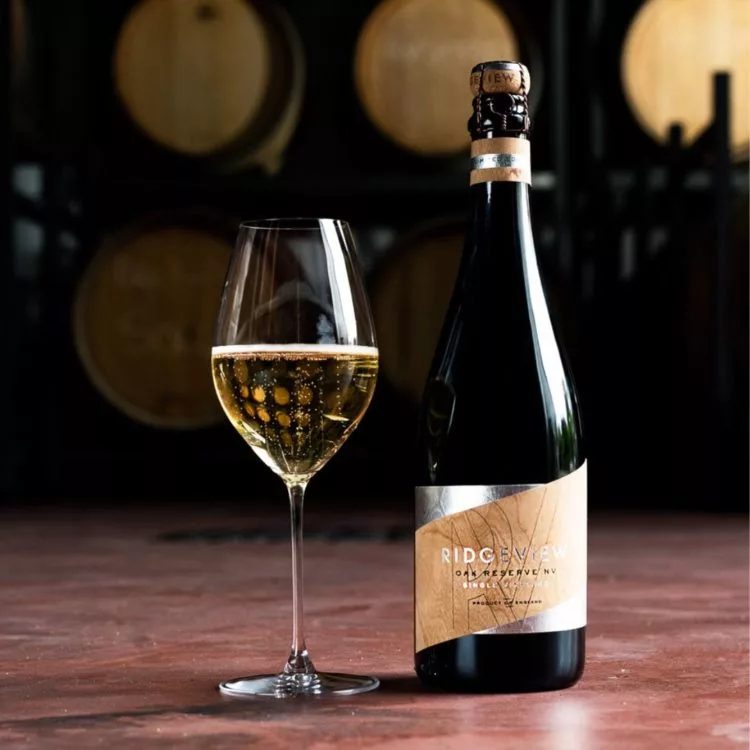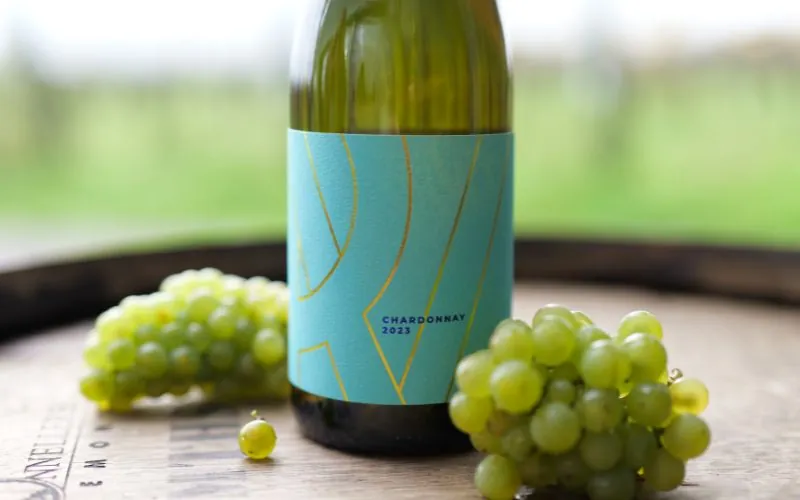Our wines are so celebrated for a very good reason. It isn’t just that they taste delicious. More than that, they taste exciting. There’s a verve to English sparkling wines that comes from their trademark balance. Over those long, just-warm-enough summers, our grapes retain acidity while developing their fruit basket of flavours. This results in sparkling wines of extraordinary purity and energy, with all the essential characters held in taut balance. Ushered in on a cascade of fine, frothy bubbles, these are wines that truly come alive in the mouth.
Fruity freshness is the defining feature of English sparkling wines. Beyond that, the specific flavours will vary with the producer, their growing terroir, the grape varieties used and the style of wine they choose to make. As a rule of thumb, white English sparkling wines such as our own Bloomsbury NV typically have more lemon, green apple and white peach flavours. Meanwhile, rosés such as our Fitzrovia NV show more red fruits – strawberries, red cherries, redcurrants and raspberries. However, with so many choices available to the UK’s winemakers, there is a thrilling landscape of stylistic subtleties to be explored.
For instance, some growing regions produce grapes with riper fruit flavours; others give more lean, steely, refreshing characters. The best producers tend to mix these different qualities into their blend to add complexity and balance to the final wines – try our award-winning Blanc de Noirs to taste the heights English grapes are capable of reaching! Ageing is another big variable in how English sparkling wines taste. Some producers like to mature their wines for many years, generating more of those delicious bakery-shop flavours. Others prefer to keep the focus on fruit purity by ageing for less than a year.


